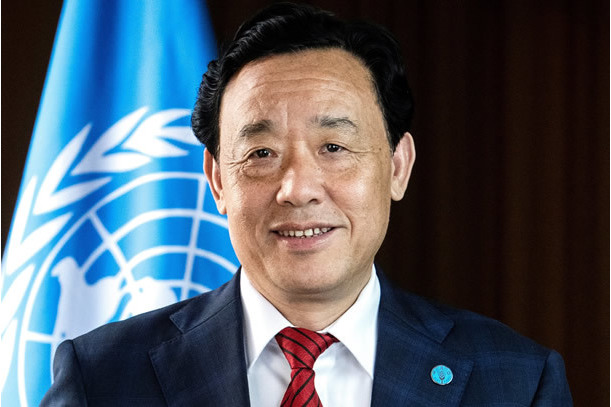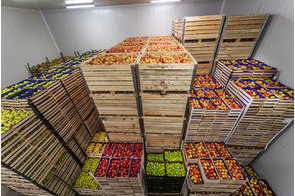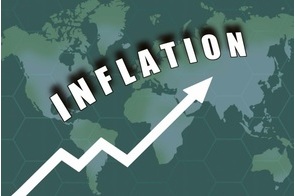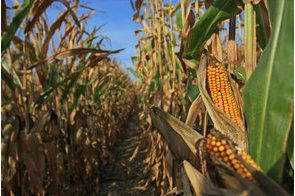Latest News
UN calls for repurposing of $470 billion in global agricultural support

News Highlight
Global support to producers in the agricultural sector is projected to soar up more than three times to $1.759 trillion.
A new report by the United Nations, released today, calls for the repurposing of approximately $470 billion in global support for agriculture to sustainable schemes in the sector. This amount, which represents 87 per cent of the total global support for agriculture, the report finds to be price distorting and environmentally and socially harmful.
According to “A multi-billion-dollar opportunity: Repurposing agricultural support to transform food systems” report, launched by the Food and Agriculture Organisation (FAO), the UN Development Programme (UNDP) and the UN Environment Programme (UNEP), global support to producers in the agricultural sector amounts to $540 billion per year, making up 15 per cent of total agricultural production value. By 2030, this is projected to soar up more than three times to $1.759 trillion.
The current support to agricultural producers mostly consists of price incentives, such as import tariffs and export subsidies, as well as fiscal subsidies which are tied to the production of a specific commodity or input. The report says these are inefficient, distort food prices, hurt people’s health, degrade the environment, and often inequitable, putting big agri-business ahead of smallholder farmers, a large share of whom are women.
In 2020, up to 811 million people in the world faced chronic hunger and nearly one in three people in the world (2.37 billion) did not have year-round access to adequate food, the UN said in a statement on the release of the new report. In 2019, around three billion people, in every region of the world, could not afford a healthy diet.
“While the majority of agricultural support today has negative effects, about USD 110 billion supports infrastructure, research and development, and benefits the general food and agriculture sector,” the statement said. “Reconfiguring agricultural producer support, rather than eliminating it, will help end poverty, eradicate hunger, achieve food security, improve nutrition, promote sustainable agriculture, foster sustainable consumption and production, mitigate the climate crisis, restore nature, limit pollution, and reduce inequalities.”
The Director-General of FAO, Qu Dongyu, said: “This report, released on the eve of the UN Food Systems Summit, is a wake-up call for governments around the world to rethink agricultural support schemes to make them fit for purpose to transform our agri-food systems and contribute to the Four Betters: Better nutrition, better production, better environment and a better life.”
Agriculture is one of the main contributors to climate change through greenhouse gas emissions from different sources, including manure on pastureland, synthetic fertilizers, rice cultivation, burning crop residue, and land-use change. At the same time, agricultural producers are particularly vulnerable to impacts of the climate crisis, such as extreme heat, rising sea levels, drought, floods, and locust attacks.
According to the UN, continuing with support-as-usual will worsen the triple planetary crisis and ultimately harm human well-being. Meeting the goals of the Paris Agreement requires shifting support especially in high-income countries for an outsized meat and dairy industry, which accounts for 14.5 per cent of global greenhouse gas emissions. In lower-income countries, governments should consider repurposing their support for toxic pesticides and fertilizers or the growth of monocultures, the global inter-governmental organisation said.
“Governments have an opportunity now to transform agriculture into a major driver of human well-being, and into a solution for the imminent threats of climate change, nature loss, and pollution,” said Inger Andersen, Executive Director of UNEP. “By shifting to more nature-positive, equitable and efficient agricultural support, we can improve livelihoods, and at the same time cut emissions, protect and restore ecosystems, and reduce the use of agrochemicals.”
The report highlights cases where such a process has begun. These include Indian state of Andhra Pradesh, which adopted a policy of Zero Budget Natural Farming; the 2006 reform of agricultural policies in China that supports decreased use of mineral fertilizers and chemical pesticides; the Single Payment Scheme in the United Kingdom that removed subsidies in agreement with the National Farmers’ Union; the European Union, where crop diversification has been incentivized through reform of the Common Agricultural Policy (CAP); and the Senegalese programme PRACAS to incentivize farmers to cultivate more diverse crops.
While acknowledging that there is no one-size-fits-all strategy for repurposing agricultural producer support, the report recommends a broad six-step approach for governments. These are measuring the support provided; understanding its positive and negative impacts; identifying repurposing options; forecasting their impacts; refining the proposed strategy and detailing its implementation plan; and monitoring the implemented strategy.
“Repurposing agricultural support to shift our agri-food systems in a greener, more sustainable direction -- including by rewarding good practices such as sustainable farming and climate-smart approaches -- can improve both productivity and environmental outcomes,” said UNDP Administrator, Achim Steiner. “It will also boost the livelihoods of the 500 million smallholder farmers worldwide -- many of them women -- by ensuring a more level playing field.”
The report was launched ahead of the 2021 Food Systems Summit, coming up later this September; COP15 on biodiversity, in October; and COP26 on climate change, slated for November. These events will allow governments to make multilateral commitments to rethink outdated agricultural subsidies, build forward better for the post-COVID-19 era, to commit to such a strategy and to coordinate and monitor its implementation, the state concluded.
Related News
Latest Blogs
- Assessing the National Policy on Marine and Blue Economy
- When the intent of taxation reset diverges from its execution
- Towards healthcare system that protects patients and is fair to practitioners
- Outlook on 2026 global remittances and Nigeria
- Putting food at the centre of Nigeria’s health reform
Most Popular News
- Artificial intelligence can help to reduce youth unemployment in Africa – ...
- Grene Capital spins out of Actis as independent real asset fund manager
- NDIC pledges support towards financial system stability
- Cairo events focus on Africa’s asset integrity and cybersecurity
- Afreximbank ends its credit rating relationship with Fitch
- Global job quality stagnates despite resilient growth – ILO









